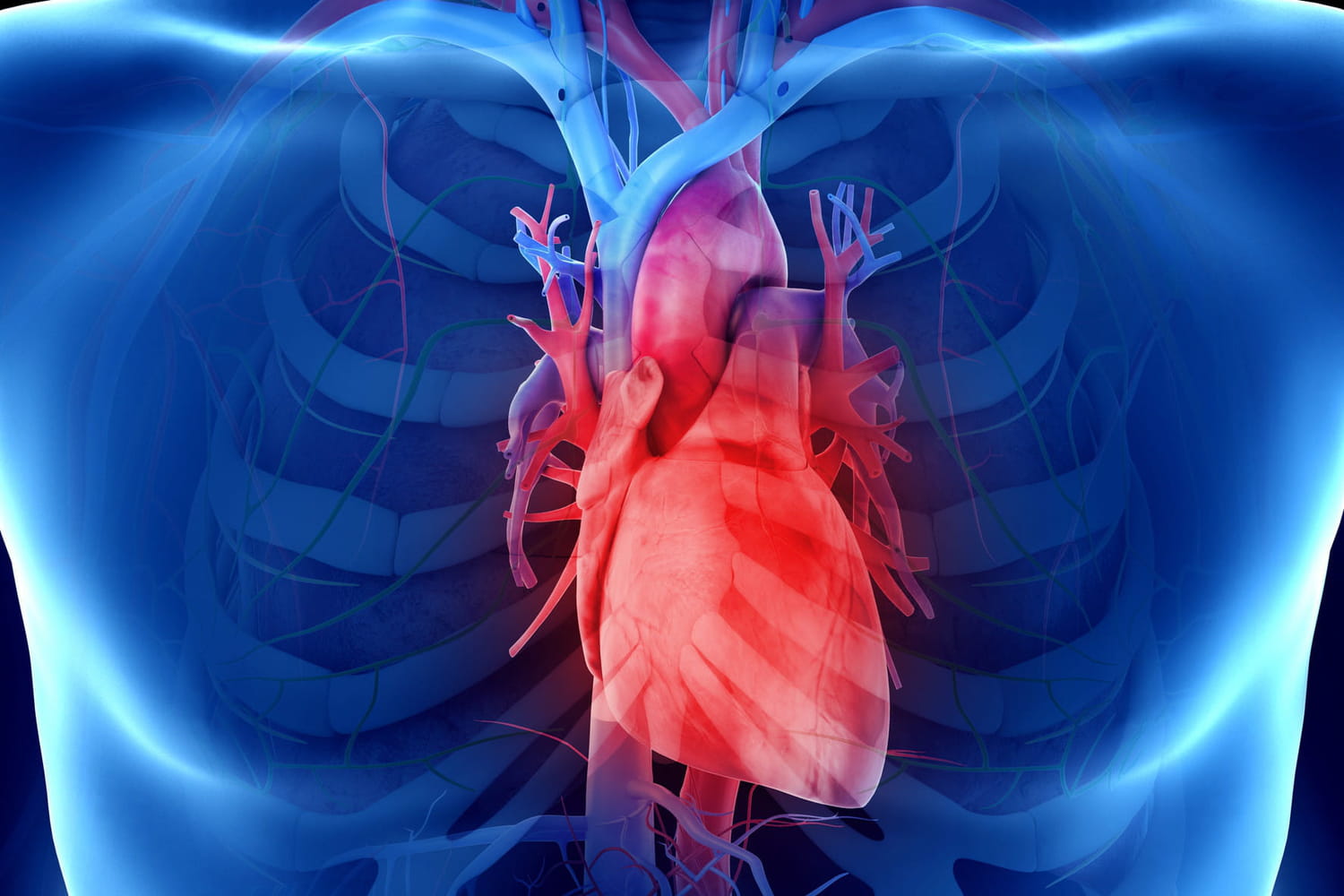Myocarditis can occur because of a virus that attacks the cells of the heart …
Myocarditis is an inflammation that touches the heart. It requires medical care and regular monitoring. What are the symptoms, treatments and chances of healing? Info.
Definition: What is a myocarditis?
Myocarditis is an inflammation of the myocardium, most often caused by a virus. The myocardium is the main muscle of the heart. Inflammation leads to the destruction of cells making up the myocardium and thus decreases its capacity for contraction and its ability to provide a blood supply to the body. Gradually, the heart is no longer able to pump blood.
Inflammation can extend to the whole heart muscle or limit itself to one or a few areas. In this case, symptoms are mild and fast and suitable management may allow healing. On the other hand, inflammation extended throughout the heart can cause significant heart failure, serious disorders of heart rhythms and sometimes sudden death.

What is stress myocarditis?
Under the name “myocarditis of stress”, we speak rather of stress cardiomyopathies, a cardiac pathology which results from an acute and transient alteration of the left ventricular function, generated by a brutal psychological or emotional stress. This anatomo-clinical entity is described under various names, apical tank of the left ventricle or Broken Heart Syndrome or Tako-Tsubo for Japanese authors.
What are the causes of myocarditis?
In the vast majority of cases, myocarditis is caused by a viral infection that attacks cells in the heart muscle. It is generally viruses from the family of coxsackievirus or adenoviruses that are responsible for myocarditis. It can also be associated with another bacterial pathology such as Lyme disease, bartonellosis or diphtheria. In rare cases, it can result from a toxic reaction following the taking of a drug, substances such as alcohol, cocaine, lead, arsenic or even following a snake or scorpion bite. In this case, myocarditis is called “hypersensitivity myocarditis”. In very rare cases, myocarditis can occur after certain chemotherapy, radiotherapy or electrocution. Cases also occurred after vaccination against COVVI-19.
What are the symptoms and signs of myocarditis?
In the least severe forms, the person feels no symptoms. In more severe cases:
- chest pain and chest level (accompanied by palpitations and a permanent oppression feeling)
- swollen legs (edema)
- embarrassment and difficulty breathing (dyspnea)
- heart failure and breathless even at rest
- Heart rhythm (fast or irregular heartbeat …)
In the case of so -called fulminant myocarditis, inflammation evolves quickly towards a serious heart failure (respiratory distress, or even cardiac arrest) which requires emergency management and sometimes the establishment of circulatory assistance or cardiac transplantation.
How is the diagnosis of myocarditis?
The diagnosis of myocarditis is based first on an interrogation (presence of symptoms listed above, medical or family history …) and a complete physical examination, practiced by a doctor. If the latter suspects a myocarditis, he can prescribe to his patient the realization of more extensive examinations to detect inflammatory signals and identify the presence of a virus in the blood such as an electrocardiogram (ECG), blood samples (C-reactive protein rate, the speed of sedimentation or white blood cells), an echocardiogram, a cardiac Coronarography (to eliminate the track from a possible myocardial infarction due to the obstruction of a coronary artery) or even a myocardial biopsy.
An inflammation of the myocardium generally takes place in three phases:
- Infection phase by a virus, which can last a few days.
- Autoimmune phase, which can extend from a few weeks to a few months.
- Phase during which the first signs of heart failure appear. The cells of its walls being inflamed or destroyed, the heart is no longer able to pump blood.
What is the treatment of myocarditis?
The treatment of viral myocarditis is based on the management of symptoms, through drugs (antivirals for example), associated with close monitoring of the patient and resting. Treatment of heart failure includes diuretics and nitrates to relieve symptoms. In parallel, it is recommended to avoid significant efforts and to restrict the consumption of alcohol and tobacco.
Is healing possible and what risks of consequences?
Healing and recovery of cardiac functions generally take place after several months. There is a risk of long -term consequences, the prognosis of which can only be given on a case -by -case basis. In cases of the most severe heart failure, transplantation may be necessary.
Myocarditis and covid-19
Viral infections, like covid, are a frequent cause of myocarditis, which can cause hospitalization, heart failure and sudden death. Published on March 27, 2020 in the Journal of American Medicine Association (Jama), a study had shown that a severe acute respiratory syndrome, one of the symptoms of a new coronavirus infection seemed to affect myocarditis and cause myocarditis. The study authors recalled that viruses in the coronavirus family are capable of affecting the cardiovascular system. Myocarditis is also recognized as an undesirable effect (very rare effect) of the vaccines of Pfizer and Moderna against the COVID-19 by the Safety Committee of the European Medicines Agency (PRAC). The ANSM recommends to anyone vaccinated against the covid with symptoms such as shortness of breath (dyspnea), chest pain, palpitations (strong heartbeat,) or an irregular heart rate to quickly consult a doctor.









